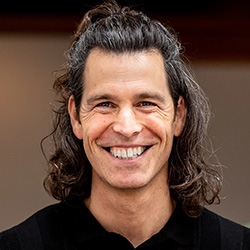

Search Results: integrity
-
Trainer Tip: The exchange of resources, that is, exchanging money for an item or service, is enhanced and better appreciated when we are connected to its personal value rather than its cost.
-
It is the first day of December and it seems to me as if 2023 went by with a flash. I have felt deep despair about the growing division between people and the devastating impact it has had on human beings, all life in fact, including our planet. And, I have also experienced many moments of joy and satisfaction this year.
-
Trainer Tip: One of the basic philosophies of Nonviolent Communication is valuing everyone’s needs equally. That means that you consider your needs to be equal to another person’s needs. If someone asks you for empathy, and you choose to empathize at you own expense, you're not living in a Nonviolent Communication consciousness. Be aware of your own needs today when someone asks you to be their emotional support.
-
Trainer Tip: Is there something you would like more of in your life right now? Try not to look to other people to provide the kind of experiences you want. Can you think of a way that you can be the change you seek? See if responding to the people the way you would want them to respond to you shifts something. Read on for an example of how.
-
When it comes to how you're achieving your goals, notice what you value. Is achievement coming at others' expense? Where is your sense of worth and validation derived from? Do other people in some way set the bar that you strive to surpass? Without comparing to other people, what does success mean to you? Read on for a related story.
-
Trainer Tip: Whether we listen to our own or the other person’s needs first, connecting to needs can help us release judgments of others, see their humanness, help us to begin to hear them and ultimately connect to them. Be aware today of times when you are judging someone. Then be aware of your own needs to improve your connection to them.
-
Read this short Japanese parable that symbolically illustrates the outcomes of having a competitive mindset – in contrast to an interdependent, collaborative one where everyone wins. It’s a story that encapsulates part of the spirit of NVC.
-
- Discover what is yours to do in response to our global crises
- Weave nonviolence more deeply into how you live and lead
- Receive ongoing support in how to be effective and alive while pursuing your highest goals
- Increase your capacity to face and mourn current reality as a source of greater choice and energy
- Be a part of transforming the legacy of scarcity, separation, and powerlessness into a livable future
-
Mismanaged emotional pain can compound and hurt ourselves and others. Four ways we can mismanage pain are: denial, blame, depression, and escape/numbing. This can result in hatred, resentment, discrimination, revenge, anger, and more problems. The fifth way we can deal with pain is to confront the pain acknowledging it and dealing with our unmet needs. This is a more direct path. Read on for more ideas for how to handle the pain.
-
When deciding if someone crossed your boundaries and how to respond, you may get conflicting opinions on it. These opinions can be coarse attempts to manage life with rules about what should(n’t) happen. Instead, so that you can find where you want to invest your energy, ask yourself questions that reveal what for you is truly in integrity, nourishing, connects to your heart, and deepens self understanding. Read on for examples.
-
Judgment is an attempt to protect from hopelessness or insecurity, at high cost. Instead, check in with fear, grief, or hurt. Then wonder what needs are at stake for everyone. This makes space for grief instead of anger, for negotiation rather than control, and for "calling in" rather than excluding. Wonder: “For whom would this be life-serving or not?”, “What strategies would care for all needs?” or, “What can I contribute now?”
-
Two NVC trainers went into dangerous, war torn territory to share the skills they found so valuable but end up learning that they need to first apply those skills before those they came to help could receive what they had to offer. Only when the foundation of connection and trust was built could they mediate the conflicts using empathic communication.
-
First, on the personal side… I’ve already planted half of my vegetable garden and it was so completely enjoyable. Remember how challenging this was for me a couple of years ago? My inner jackal did have a few things to say this year, but not nearly as many as in past years. And, I gave her loads of empathy so we made it through. I am thrilled about this. I can’t wait to see my seedlings pop up! If it’s a successful garden, I’ll share pictures in a future letter.
-
- Discover what is yours to do in response to our growing global crises
- Weave nonviolence more deeply into how you live and lead
- Receive ongoing support within and beyond the course in how to be effective and alive while doing what’s yours to do
- Increase your capacity to face and mourn current reality as a source of greater choice and energy
- Be a part of transforming the legacy of scarcity, separation, and powerlessness into a livable future
-
I’m Jeff Brown, Executive Director of the Center for Nonviolent Communication. Mary asked me to be a guest writer for this newsletter, and it’s allowed me to look deeply at the role NVC plays in my life, personally and professionally— especially in running a successful NVC organization.
As the director of an NGO, I am grateful to have learned Nonviolent Communication. I utilize the principles constantly, and I’m not sure how I would survive without them.
-
Don’t know how to effectively work through differences with others in your organization? You are not alone… Like most of us, you simply lack the training and skills – and that’s what you’ll acquire listening to this course recording. Join Miki and learn specific tools and tips that work – for everyone!
-
- Discover what triggers shame in you, and how to transform it
- Learn to navigate a shame attack and make good use of it
- Expand your capacity for recognizing when others are experiencing shame
- Connect with others who get trapped in shame avoidance patterns
- Allow your vulnerability to bloom by disentangling shame from fear
-
We all blow it sometimes. Maybe we are triggered and react in ways we regret. Or we unknowingly say or do something that unexpectedly touches a nerve for someone else. Either way, how do we heal the disconnection? In this session, you'll learn how to integrate skills for repairing relationships.
-
Observation is the awareness of our sensory perceptions and thoughts, separate from evaluations and judgments. Feeling involves bodily sensations and emotions, distinct from "faux feelings" that mix thought and emotion. Needs encompass universal human requirements for survival and wellness, while thoughts and evaluations express needs. Requests are rooted in connection and invite true willingness, rather than demanding compliance.
-
- Learn how to use empathy to dissolve conflict
- Deepen your NVC skills to help let go of judgments
- Explore approaches for asking for what you want
- Listen to the conflict within yourself

Quick Links
Subscription Preferences
Stay In Touch!
Looking for ways to keep up with NVC Academy news, get special offers, free resources, or words of inspiration? Here are five ways to stay engaged:




















